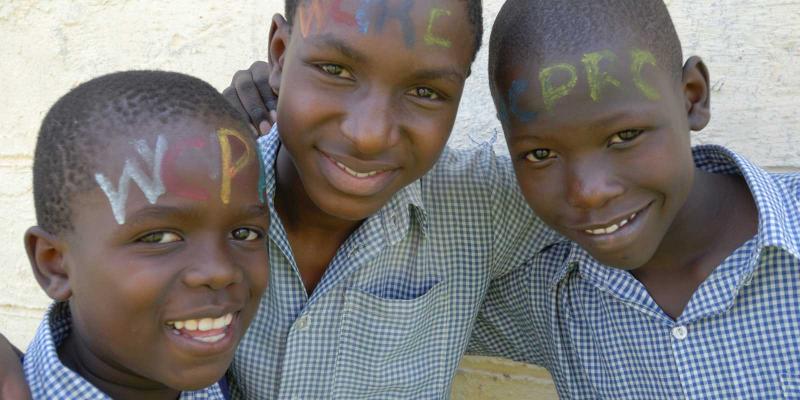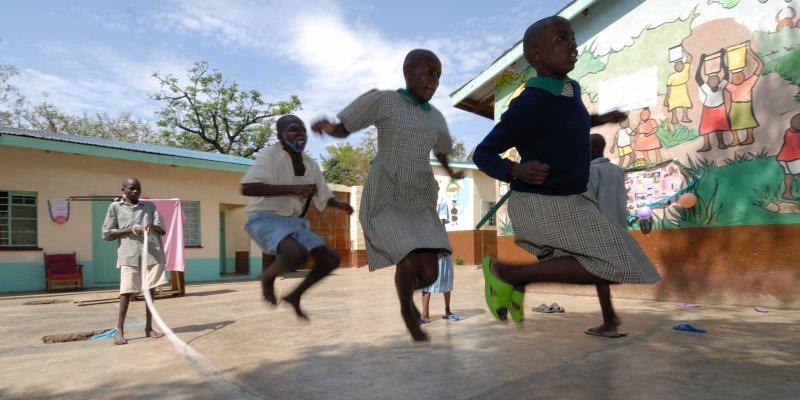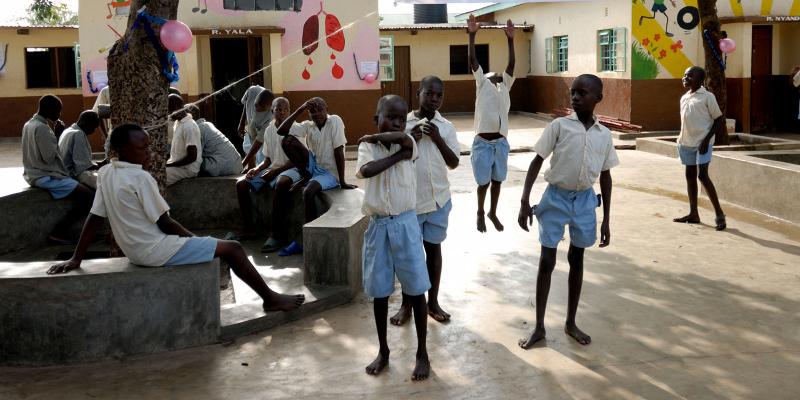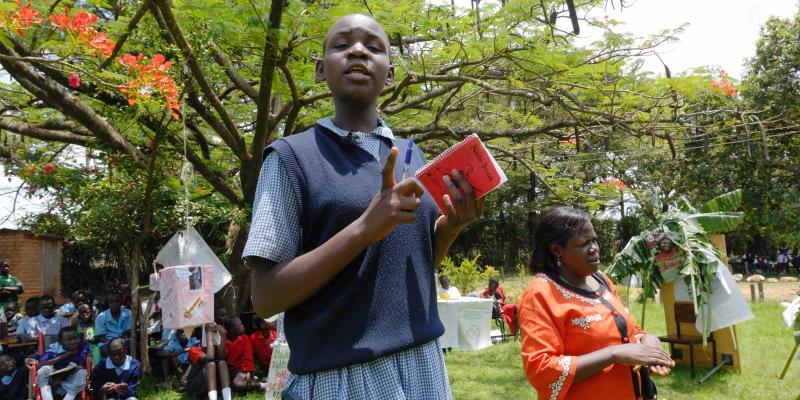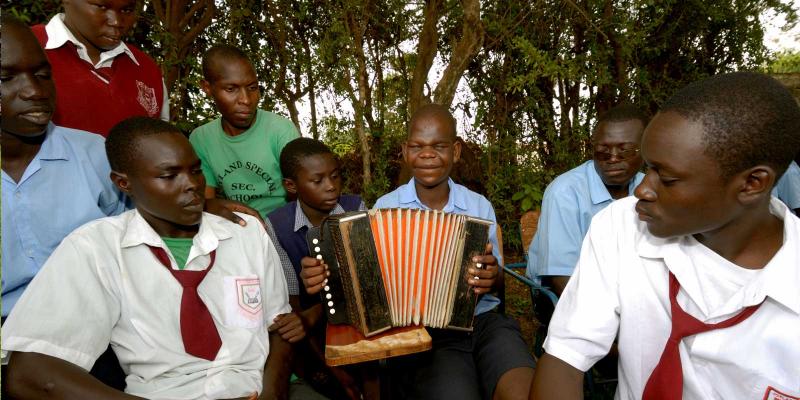
On the grass between the ballot boxes and the queue of voting students, Mary, 15, sits in a red wheelchair. It is Global Vote Day at Joyland Special School for the Physically Challenged in Kisumu, Kenya.
Mary is nervous. Many children from other schools, who are not disabled, have been invited to the Global Vote. Mary isn’t sure whether she has the courage to recite the poem she has written. What if they start to laugh at her?
But Mary decides to go
for it. After all, she has
the chance to tell everyone
what it’s like to have your
rights violated. How it feels
when you’re not respected for
who you are. Her voice trembles,
and then gets stronger
and stronger as she reads:
“There is no application
form to be disabled. If there
were, I do not imagine myself
filling one in...”
A hush descends over the
people queuing to vote.
Everyone is listening to
Mary. When she is finished,
there is an explosion of
applause. Mary looks around,
blushing. She is surprised.
She hadn’t expected that!
Never got to play
“I was afraid that the children
who are not disabled would
laugh at me. After all, it’s the ‘healthy’ ones who usually
make life difficult for us.
They stare, laugh and point.
It feels horrible. As if we’re
aliens,” says Mary.
She has had that feeling for
most of her life.
“My parents died when I
was small, so I had to live
with my aunt. Just like almost
all parents of disabled children,
she was ashamed of me,
and kept me hidden away. I
was never allowed to leave the
house. I could never go out
and play. The idea of going to school was totally unthinkable.
“I was never allowed to eat
at the table with my aunt’s
family. I had to sit on the
floor and eat leftover scraps. I
wasn’t even allowed to wash,
or wear clothes like other
people. I wore a torn old
blouse on top, and from the
waist down I was naked. I
didn’t have a wheelchair, and
most of the time I just had to
lie on the floor. Since I wasn’t
very mobile and nobody
helped me, I hardly ever made
it to the toilet in time. When
I needed comfort and called
my aunt ‘mum’, she would
shout at me that she would
never be my mother.”
Global Vote
“When a neighbour saw me,
he was furious with my aunt.
He said that of course I
should be treated like all other
children! He helped me get
into the school where I now
live. Here, I get help to wash
and eat good food. Finally, I
dared to believe that life
could be better. And it is! I’m
doing well at school, but the
most important thing is that
I have found friends, a family.
Finally, I feel like I belong
somewhere, just as everyone
should feel in life. You
shouldn’t have to be alone.
Today when I read my poem,
I got the same lovely feeling.
When everyone really listened
and then clapped, it felt
like we belonged together.
And it felt like I counted.
Global Vote Day is incredibly
important to me, because it
was through reading The
Globe magazine and preparing
for the Vote that I first found out that we disabled
children actually have rights.
Today, I voted to fight for all
children’s rights to be
respected. For my right to be
respected just as I am!”
TEXT: ANDREAS LÖNN
PHOTOS: KIM NAYLOR
Långgatan 13, 647 30, Mariefred, Sweden
Phone: +46-159-129 00 • info@worldschildrensprize.org
© 2020 World’s Children’s Prize Foundation. All rights reserved. WORLD'S CHILDREN'S PRIZE®, the Foundation's logo, WORLD'S CHILDREN'S PRIZE FOR THE RIGHTS OF THE CHILD®, WORLD'S CHILDREN'S PARLIAMENT®, WORLD'S CHILDREN'S OMBUDSMAN®, WORLD'S CHILDREN'S PRESS CONFERENCE® and YOU ME EQUAL RIGHTS are service marks of the Foundation.



